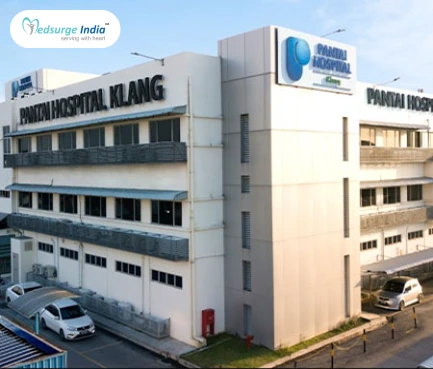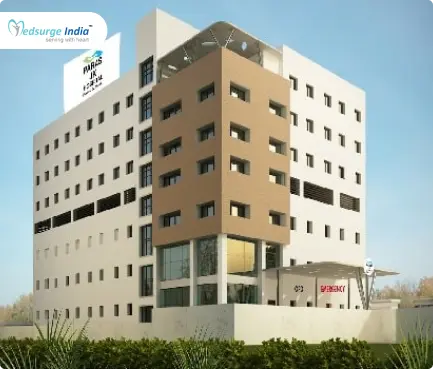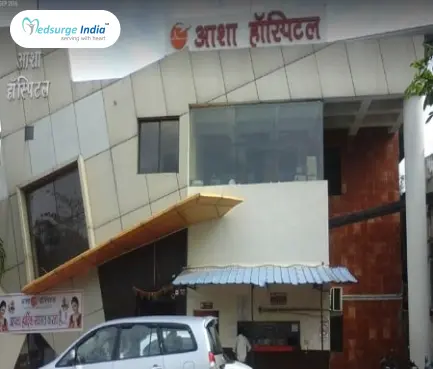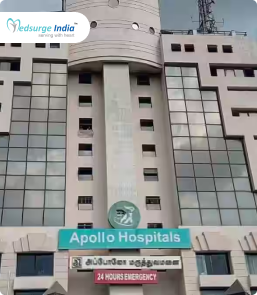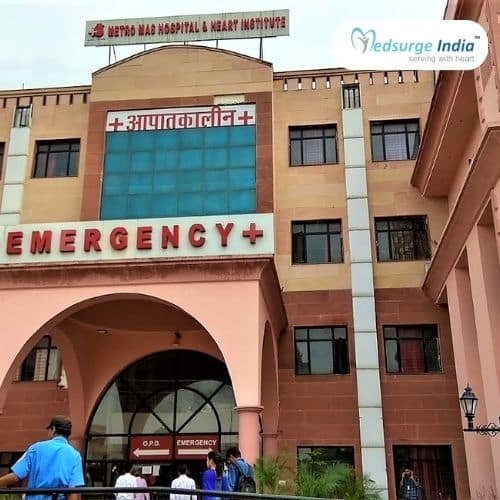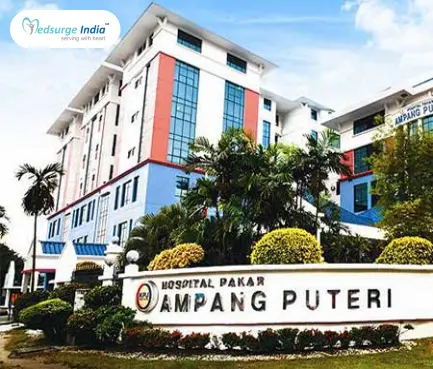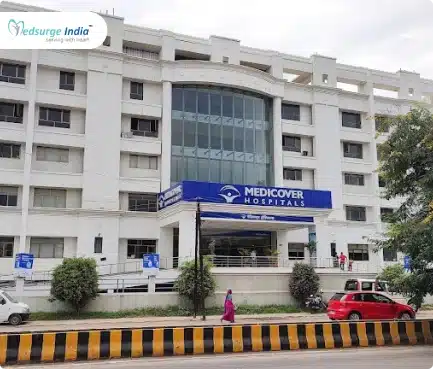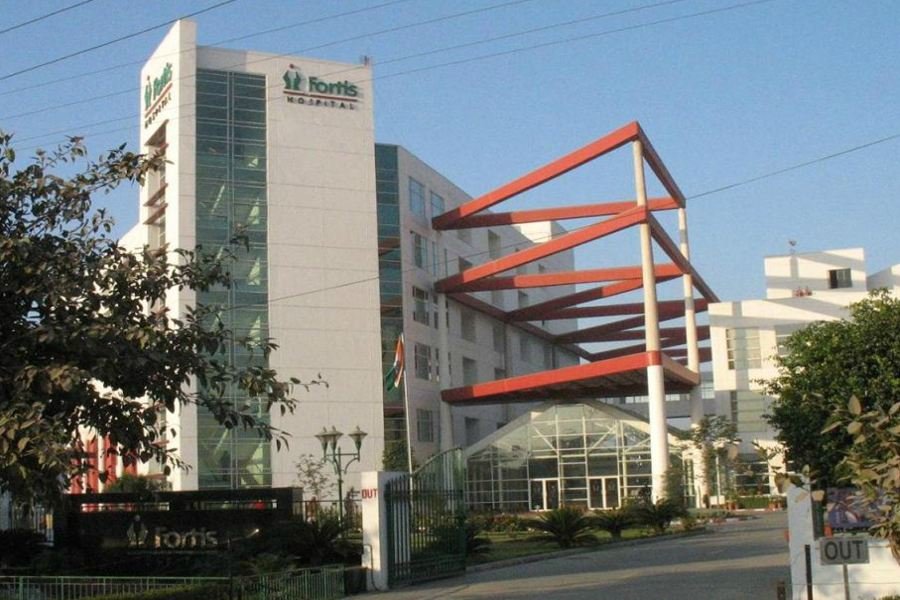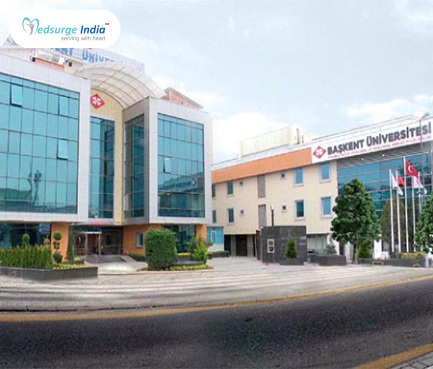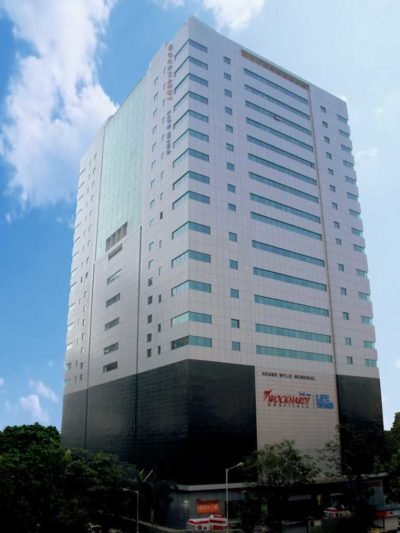
Peritoneal cancer is rare cancer that originates in the peritoneum, a thin, delicate layer that covers the uterus and extends across the bladder and rectum, and lines the inside wall of the abdomen. Epithelial cells make up the peritoneum. The peritoneum aids the smooth movement of the organs within the abdomen by creating a lubricating fluid. Peritoneal cancer treatment in India is determined by cancer’s stage, the location of the main tumor, how far it has progressed, and the patient’s overall health.
Peritoneal cancer looks and behaves like ovarian cancer, but the ovaries are minimally involved. Women who get ovarian cancer after having their ovaries removed have a high risk of developing peritoneal cancer.
What Is Peritoneum?
The peritoneum protects all of the organs in the abdomen, including the bowel and liver. It works as an infection barrier and protects the organs. It consists of two layers. The parietal layer lines the abdominal wall. The visceral layer covers the organs.
Between the two layers, there is a small amount of fluid that separates them and allows them to slide over each other. We can move around in this fluid without producing friction between the layers.
About Primary Peritoneal Cancer
Primary Peritoneal Cancer specifically affects females. It’s extremely rare in men. When most persons are diagnosed, they are over 60 years old.
There are no exact statistics for how many people worldwide acquire it. According to research, PPC affects about 10 out of 100 (around 10%) of all women with ovarian, fallopian, and peritoneal cancers.
The causes of PPC are unknown. The majority of cancers are caused by a combination of factors. According to research, a small proportion of PPCs may be connected to the inherited defective genes BRCA 1 and BRCA 2. These are the same genes that make you more likely to get ovarian and breast cancer.
Stages of Peritoneal Cancer
Peritoneal cancer is staged when it is initially discovered, based on its size, location, and extent of spread. It’s also given a grade, which estimates how quickly it’s able to spread.
Primary Peritoneal Cancer – Due to the similarities between the cancers, primary peritoneal cancer is staged using the same system as ovarian cancer. Primary peritoneal cancer, on the other hand, is always stage 3 or 4.
Ovarian cancer has two earlier stages.
- Stage 3 is divided into 3 further categories: 3A, 3B, and 3C.
- Cancer has progressed to other organs in stage 4. This stage is further subdivided as follows: 4A and 4B.
Secondary Peritoneal Cancer – The primary cancer site determines the stage of secondary peritoneal cancer. When primary cancer spreads to another portion of the body, such as the peritoneum, it’s commonly considered stage 4 cancer.
What Are the Symptoms of Peritoneal Cancer?
Primary peritoneal cancer symptoms are often vague and difficult to detect. Other medical disorders are more likely to cause many of the symptoms. PPC causes the following symptoms:
- A swollen stomach (abdomen)
- Stomach ache
- Diarrhea or constipation
- Being unwell or feeling sick
- Bloated feeling
- Appetite suppression
- Back Pain
- Vaginal Discharge
- Nausea and vomiting
- Sudden changes in body weight
- Enlarged Abdomen
As cancer spreads, a watery fluid called ‘ascites’ can build up in the abdominal cavity, causing:
- Frequent shortness of breath
- Severe pain in the abdomen
- Fatigue
- Extreme Nausea or vomiting
Late-stage peritoneal cancer symptoms include:
- Complete bowel or urinary blockage
- Swelling in the stomach
- Inability to eat or drink
- Vomiting
What Are the Causes and Risk Factors of Peritoneal Cancer?
The causes of peritoneal carcinoma are not recognized yet. The following are risk factors for primary peritoneal cancer:
- Age: Your risk increases as you become older.
- Genetics: Having ovarian or peritoneal cancer in your family raises your risk. Carrying a BRCA1 or BRCA2 gene mutation, as well as one of the Lynch syndrome genes, enhances your risk.
- Hormone therapy: Taking hormone therapy after menopause slightly increases your risk.
- Weight and height: Being overweight or obese increases your risk of developing diabetes. Tall people are at an increased risk.
- Endometriosis: Endometriosis raises your risk of pregnancy.
The following factors have been linked to a lower the risk of peritoneal or ovarian cancer:
- Taking birth control pills
- Bearing children
- Breastfeeding
- Tubal ligation, fallopian tube removal, or ovary removal
Peritoneal Cancer Treatment Cost in India
On average, Peritoneal Cancer Treatment Cost in India starts from USD 5000. The cost of Peritoneal Cancer treatment in India will also depend on various factors.
Types of Treatment Procedure for Treating Peritoneal Cancer Treatment in India
| Treatment | Starting Price |
| Surgery | USD 3600 |
| Chemotherapy | USD 600 |
| Radiation Therapy | USD 3100 |
| Targeted Therapy | USD 1200 |
Estimated prices depending on different cities in India
| Cities | Starting Price |
| Delhi | USD 5000 |
| Gurgaon | USD 5200 |
| Noida | USD 5000 |
| Mumbai | USD 5200 |
| Hyderabad | USD 5000 |
| Chennai | USD 5000 |
| Kolkata | USD 5100 |
| Bangalore | USD 5300 |
Note: Do remember that the pricing and the treatment for Peritoneal Cancer Treatment cost in India will vary depending on the patient’s choice and other various factors.
Factors That Can Affect Peritoneal Cancer Treatment Cost in India
The following here are some variables that can affect Peritoneal Cancer Treatment Cost in India:
- Medication costs.
- Duration of treatment.
- Geographical location.
- Hospitalization expenses.
- Government policies and subsidies.
- Medical tourism packages.
- Hospital reputation and infrastructure.
- The expertise and experience of medical professionals.
- The type and frequency of diagnostic procedures.
- The choice of treatment modality.
Furthermore, even the standard and grade of medical care and amenities are comparable to those of the most prestigious healthcare facilities in the world, even when the expense of lodging, meals, and transportation is taken out. Also, under the direction of the most skilled physicians, Medsurge India provides patients with the lowest Peritoneal Cancer Treatment Cost in India.
How Peritoneal Cancer is Diagnosed?
Early diagnosis of both primary and secondary peritoneal cancer is challenging. This is due to the symptoms’ uncertainty, which can be easily attributed to other causes. Peritoneal carcinoma is commonly detected only during surgery to remove a tumor elsewhere in the abdomen.
Your doctor will check you physically, assess your medical history, and inquire about your symptoms. To make a diagnosis, they may prescribe a set of tests.
Diagnosis of Peritoneal carcinoma is done using the following tests:
- Imaging Tests
- Biopsy
- Series of Blood Tests
- Laparoscopy or Laparotomy
- Pelvic Examination
- Paracentesis
Considering Special Tests – If you have any of the following, you may be directed to a genetic counselor to explore genetic testing for certain diseases linked to an increased risk of peritoneal cancer:
- Peritoneal cancer, fallopian tube cancer, or ovarian cancer in a first-degree relative (mother, sister, or daughter).
- BRCA1 or BRCA2 gene mutations in the family.
- Family history of Lynch Syndrome.
Get Free Cost Estimation
Procedure
How Is Peritoneal Cancer is Treated?
The following factors influence primary peritoneal carcinoma treatment in India:
- Size and location of the tumor
- Stage of cancer
- Your age and general well-being
Surgery is usually the initial course of action for the doctor. A treatment known as cytoreductive surgery may be performed on you. The goal of this procedure is to remove as much cancer as feasible. According to research, when a gynecologic oncologist performs the surgery, the results are better. These specialists address disorders that impact the female reproductive organs, such as cancer.
In addition, your surgeon may remove:
- Ovaries and fallopian tubes (oophorectomy).
- Uterus (hysterectomy).
- The omentum is a fatty tissue that surrounds your intestines (omentectomy).
- Additional abnormal tissue
Your treatment strategy may also include the following to prevent cancer cells from spreading to other parts of the body:
Chemotherapy: Traditional peritoneal cancer treatment in India is administered through the veins (intravenous) or directly into the abdominal cavity (intraperitoneal). Providers may utilize hot chemotherapeutic medicines in some circumstances (hyperthermic intraperitoneal chemoperfusion or HIPEC). HIPEC is injected into the abdominal cavity while you are still under anesthesia in the operating room after cytoreductive surgery. HIPEC may be a more effective way to give chemotherapy in some cancers.
Targeted Therapy: Your provider may use specific drugs to target cancer cells without affecting normal cells.
Hormonal Therapy: Providers may combine hormone therapy with chemotherapy in extreme circumstances. This treatment prevents cancer cells from growing by preventing natural hormones from reaching them.
Radiation: Radiation therapy is rarely used as the first treatment for peritoneal cancer. They might use radiation to target minor cancerous spots that have reappeared after initial treatment.
Suggestion
One goal of follow-up care is to check for a recurrence, which means that cancer has come back. Small areas of cancer cells in the body can go undiagnosed, causing cancer to return. These cells may grow in number over time, causing signs and symptoms or appearing on test results. A doctor who knows your medical history can provide you with specific information regarding your risk of recurrence during follow-up care. Your doctor will inquire about your medical history and ask you specific health-related questions. Some people may have blood tests or imaging tests as part of routine follow-up care, although testing recommendations are based on a variety of factors, including the type and stage of cancer detected at the time of diagnosis, as well as the treatment options used.
The Most Important Frequently Asked Questions
Q: Is It Possible to Cure Peritoneal Cancer?
A: The majority of people are diagnosed with peritoneal cancer after it has progressed to the point where a cure is no longer possible. However, there are other ways to improve one’s quality of life.
Q: What Is the Best Peritoneal Cancer Treatment?
A: For some patients with peritoneal surface malignancy, tumor debulking, also known as cytoreductive surgery (CRS), and hyperthermic intraperitoneal chemotherapy (HIPEC), has been demonstrated to be a successful treatment option.
Q: What Is Peritoneal Stage 4?
A: Cancer has progressed to other organs in stage 4, which is divided into two substages: Cancer cells can be discovered in the fluid that collects around the lungs (Figure 4A). 4B: Cancer has spread to organs and tissues outside of the abdomen, including the liver, lungs, and groin lymph nodes.
Q: What Is the Description of a Peritoneal Mass?
A: Initial peritoneal tumors are tumors that have their primary manifestation in the peritoneum and do not have a visceral origin. Mesothelial cells, submesothelial mesenchymal cells, and uncommitted stem cells all produce them.
Q: What Is the Source of Peritoneal Fluid?
A: The fluid from the peritoneal cavity, which is a space between the abdominal wall and the organs inside, is known as peritoneal fluid.
Top Hospitals for Peritoneal Cancer Treatment in India
Top Doctors for Oncology and Oncosurgery
Dr. Hakeem Ansar Hussain
Director
Experience: 8 years of experience
Fortis Escorts Hospital, Amritsar
Amritsar, India
Dr. Shashikant Limbachiya
Consultant
Experience: 15 years of experience
Narayana Multispeciality Hospital
Ahmedabad, India
Dr. Tapti Sen
Consultant
Experience: 31 years of experience
AMRI Hospital, Kolkata (Mukundapur)
Kolkata, India
Dr. Sowrabh Kumar Arora
Associate Director
Experience: 13 years of experience
Max Super Speciality Hospital, Patparganj, New Delhi
New Delhi, India
Dr. Sabyasachi bal
Chairman
Experience: 34 years of experience
Sir Ganga Ram Hospital, New Delhi
New Delhi, India
Dr. Sajal Kakkar
Associate Director
Experience: 19 years of experience
Max Superspecialty Hospital, Mohali
Mohali, India
Dr. Mallik Singaraju
Consultant , MBBS, MD
Experience: 13 years of experience
Continental Hospitals, Hyderabad
Hyderabad, India
Dr. Arun Kumar Verma
Associate Consultant
Experience: 16 years of experience
Max Super Speciality Hospital, Patparganj, New Delhi
New Delhi, India
Dr. Peush Bajpai
Consultant , MBBS, MD, DM
Experience: 17 years of experience
Manipal Hospitals Dwarka, Delhi
Delhi, India
Dr. Ashish B. Agrawal
Consultant
Experience: 15 years of experience
Kiran Multi Super Speciality Hospital & Research Center
Surat, India
Dr. Durgatosh Pandey
Head of Department
Experience: 18 years of experience
Manipal Hospitals Dwarka, Delhi
New Delhi, India
Dr. Sudesh M Phanse
Consultant
Experience: 31 years of experience
Nanavati Super Specialty Hospital Mumbai
Mumbai, India
Dr. Hitendra Patil
Consultant
Experience: 15 years of experience
Apollo Spectra Hospital, Mumbai
Mumbai, India
Dr. Rajkumar Prakash
Experience: 10+ years of experience
Narayana Superspeciality Hospital, Amingaon, Guwahati
Guwahati, India



